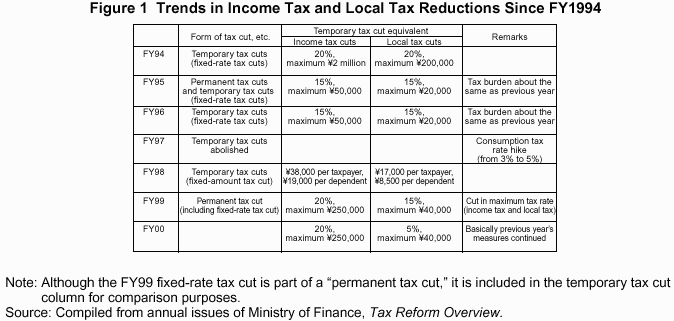- NLI Research Institute >
- Reform of the Income Tax and Public Pension Systems, and their Effect on Households
Reform of the Income Tax and Public Pension Systems, and their Effect on Households
Tatsuya Ishikawa
Font size
- S
- M
- L
Japanese society is aging at an accelerating pace. Unfortunately,when Japan failed to pull itself out of the recession in the second half of the 1990s, the government focused on short-term policy measures to stimulate the economy and postponed the much-needed fundamental reform of tax and social security systems. While the economy finally started a gradual recov-ery in spring 1999, continued weakness in private sector demand leaves unchanged the priori-ty for achieving a sustained recovery. But there is now evidence of a subtle change in policy-making. A report by the Government Tax Commission on tax reform for fiscal 2000 cited its basic principle as ensuring that reforms “do not hinder the fundamental overhaul of the tax system.” Although “tax reform” was generally perceived to be synonymous with tax cuts in the past, it is evident that fundamental reform is now in the picture.
Against this backdrop, we review the details of income tax and public pension system reforms. In this paper, we concentrate on benefits and contribution burdens that are particular-ly relevant to households, analyze the short and long-term effects of reform, and discuss the direction of future reform measures.

Tatsuya Ishikawa
Research field
レポート紹介
-
研究領域
-
経済
-
金融・為替
-
資産運用・資産形成
-
年金
-
社会保障制度
-
保険
-
不動産
-
経営・ビジネス
-
暮らし
-
ジェロントロジー(高齢社会総合研究)
-
医療・介護・健康・ヘルスケア
-
政策提言
-
-
注目テーマ・キーワード
-
統計・指標・重要イベント
-
媒体
- アクセスランキング

















